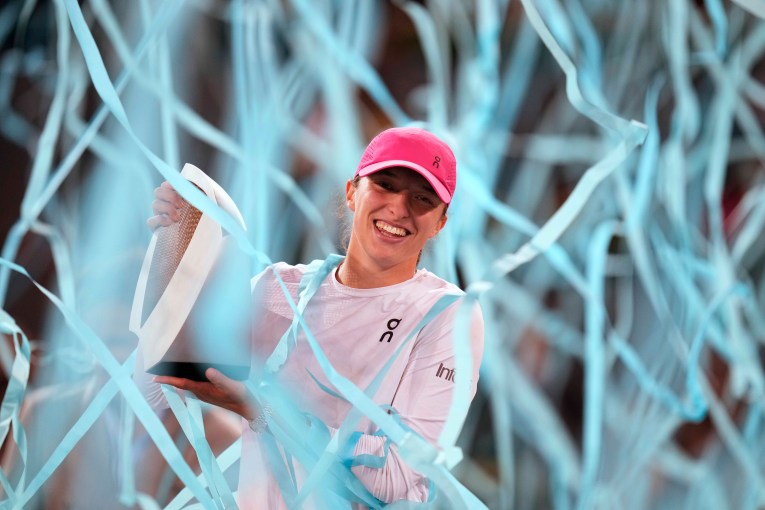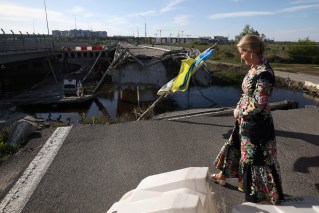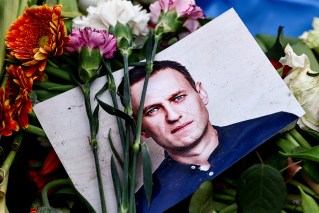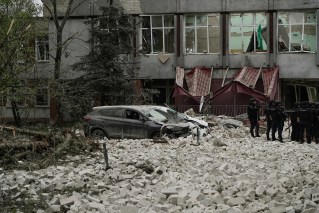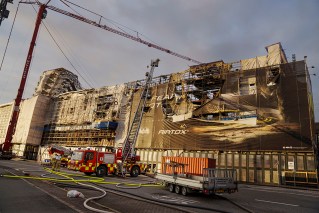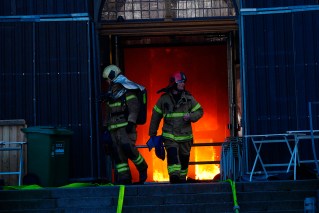Dubious stats and a tarnished image: COVID-19’s threat to Vladimir Putin
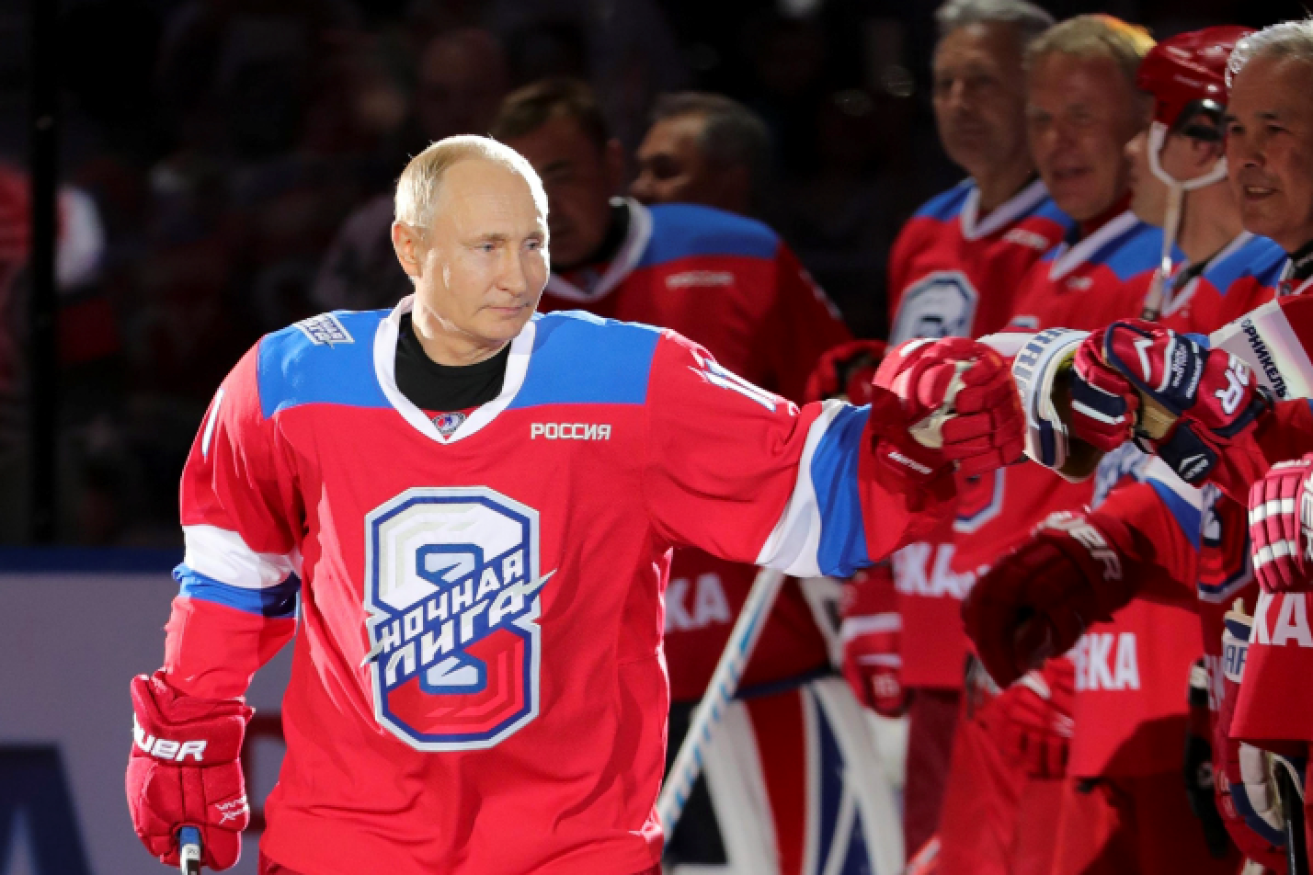
Vladimir Putin delights in displaying his macho streak, now threatened by COVID-19. Photo: AP
Last week, Russian President Vladimir Putin came face to face with the coronavirus and emerged unscathed. Nobody was surprised.
He’d been seen on Russian television, touring a hospital and standing just centimetres from a doctor who later tested positive.
However, according to the Kremlin, tests showed “everything was OK” with Mr Putin.
Although the 67-year-old President may indeed be fit and well, a positive test result would not have been in keeping with his strongman image.
For 20 years, he has cultivated a hero-like persona, competing in judo, scuba-diving, driving tanks, firing weapons, fishing and horse riding.
Tackling coronavirus within Russia will require a heroic effort, but for Vladimir Putin, the risks are enormous.
“This is a stress test for the Russian system,” said Mathieu Boulegue, a research fellow in Chatham House’s Russia program.
“This could be a sort of a swansong scenario for the Kremlin, if they mess up with the response,” he said.

Australian Jason Fenton is taking no chances in St Petersburg. Photo: ABC
While residents of major cities have been told to stay at home, Australian expat Jason Fenton, who lives in St Petersburg, said some people weren’t taking the threat seriously.
“Not everyone is adhering to the self-isolation,” he said.
“If I go to a supermarket, I need to go late at night to avoid the crowds.”
Mr Fenton, who runs a web development business, said he’d seen some examples of panic buying.
“Initially, when they announced that the borders to Europe were going to be locked down, things like buckwheat, pasta and rice sold out very quickly,” he said.
“But toilet paper [shortages]? We’re not having that problem.”
He said in recent weeks, he’d even heard some people joking about the virus by saying: “It’s OK, we drink vodka. We already have the medication.”

Masks are everywhere in Moscow even as suspicions grow that officials are hiding the actual toll. Photo: AP
It’s easy to see where that complacency comes from.
As of April 3, Russia had 3548 officially confirmed cases of the coronavirus with a total of 30 deaths, according to figures compiled by Johns Hopkins University.
While that number increased significantly in recent days, it’s still relatively low, considering Russia has a population of 146 million people and shares a vast border with China and Europe.
Russia’s efforts to control the virus may have indeed given it a head start.
It shut its border with China in January and progressively closed other crossings throughout March.
However, serious cracks in Russia’s defences emerged last week when Moscow’s Mayor Sergei Sobyanin said infections were likely to be much higher than official figures suggested.

Vladimir Putin donned full protective gear to visit COVID-19 patients. Photo: AP
Russia’s Doctor’s Alliance, a union group with links to opposition figure Alexei Navalny, also accused the government of deliberately hiding the number of infections — accusations the Kremlin denied.
“They have a habit of fiddling with figures,” Mr Boulegue said.
The Russia expert doubted the Kremlin would pursue a large-scale cover-up of cases, but would instead try to shield the President from the situation if it goes badly.
On April 2, the President addressed the nation, telling Russians that a paid non-working week would now last a month in order to “win time”.
“The peak of the epidemic in the world has not yet been reached, and in our country as well,” Mr Putin said.
While Mr Putin has made national addresses and posed for photos, he has left many of the tough announcements about lockdowns and other restrictions to others.
This is a deliberate strategy to “shift responsibility”, according to Mathieu Boulegue.
“[Putin can say] that if your region gets a massive outbreak, it’s not the fault of my government, it’s the fault of your region. So blame your [regional] government,” he said.
Putin addresses the nation regarding the chinese virus … leaning left. pic.twitter.com/F966r0W6p7
— Soren (@sorenemile) April 4, 2020
Officials in Moscow have extended a partial lockdown until May, banning people from leaving home unless they’re buying food, medicine or getting exercise.
The crisis is already creating major political headaches for Mr Putin, who has been forced to delay a constitutional vote that would allow him to remain in power until 2036.
If the virus takes hold in poorly resourced regions with struggling health systems, it risks breeding “wider discontent”, Mr Boulegue said.
“This is something the Kremlin needs to avoid at all costs.
“They can’t face a social crisis that comes in the middle of power transition discussions.”
From Russia, with love
Despite creating enormous challenges for Russia, the pandemic has created opportunities for Vladimir Putin.
Following discussions with US President Donald Trump, Mr Putin arranged for a planeload of medical supplies to be flown to New York.
It was a “very nice” gesture, Mr Trump said.
It was also a chance for Russia to portray itself as a generous and capable world player, coming to the aid of the United States.
“This is nuts,” tweeted Andrew Weiss, vice-president of studies at the Carnegie Endowment for International Peace.
“Hopefully someone will tell Trump that he’s playing right into a propaganda ploy.”
The Russian military has released several videos of its forces disinfecting aged-care homes in northern Italy.
It has also sent planeloads of equipment to Italy, which some diplomats believe is another attempt to exert influence in Europe, where newly enforced border restrictions have created divisions.
“Russia’s trying to probe European solidarity. It’s very self-serving,” Mr Boulegue said.
Mr Putin has also suggested sanctions against his country should be relaxed, in light of the pandemic.
“Ideally, we should introduce a moratorium, a solid moratorium on restrictions on essential goods as well as financial transactions for buying them,” he said.
The Russian President seems determined to make the best of a bad situation. As he said in a televised address earlier this week: “God helps those who help themselves.”
